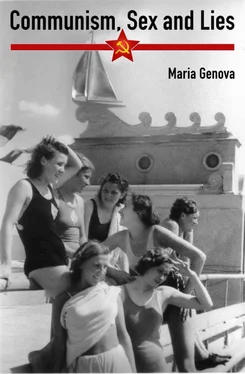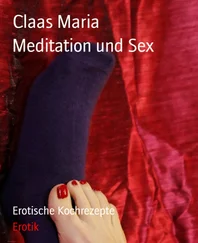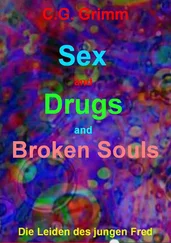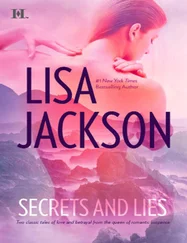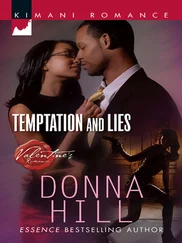Marry a farmer? Never! I was looking for a knight in shining armour and not a knight on a tractor. Owning a villa in the mountains, where you made contact with the local farmers, was different from marrying into one. I would be deeply unhappy about being a peasant girl, because I was neither used to working the land nor listening to gossip.
Besides, the villagers had unusual customs. One tried to win my heart by bringing my parents a live chicken when they phoned to say they would not be on time for dinner.
I also had no idea what to do with the bird, which in the meantime my admirer had slaughtered on the street. I put the bird, feathers and all, in a pan of boiling water. It never occurred to me to pluck it, so I cooked the bird long enough until it no longer looked appetizing. I can’t remember what we ate for dinner that night, but it wasn’t chicken.
The train rushed past many small villages. I looked at the hardworking people who were working the fields in the bright sun. As an outsider, I found the farmers to be friendly, but I hoped never to make their acquaintance as an insider. I tried to forget Julia’s words by looking for an empty coupé, where I could close the curtains and read without interruption. After looking in several coupés I found one where the curtains were still in one piece. I was only bothered by the music that I couldn’t switch off and by the roasting central heating. But if I was reading a good book I wouldn’t hear the music and after stripping a little bit the heat wouldn’t bother me either. I opened the window and enjoyed the fresh air that blew in.
We always copied things from Russia, but our trains were the big exception. Here they had coupé guards who guarded the window keys. I had to laugh at the story of the English man who had asked the guard to open the window a little bit. He was so happy to have found a way to get fresh air that, with a typical Western naivety, he asked if she could open another window. She had gone back to her seat and had no intention of standing up again. When he asked again, she did stand up. She walked to the window that she had just opened, closed it, locked it and sat down again.
No one dared protesting to civil servants, because that didn’t make any difference. We could only secretly hope for a more democratic system. When the communist express train suddenly slowed down, people wondered why. Had Western spies tried to derail the train or had domestic traitors loosened a few bolts? We already knew that Stalin had gone down the wrong track with his inhuman bloody cleansing and that Lenin had literally had his enemies taken down, but we believed we would come back on the right track.
My train of thought was interrupted when my coupé door opened.
‘Hello, Mer. Nice to see you again.’
‘Ivan? How is the tennis?’
‘I quit. A bad injury can change your whole life.’
I felt truly sorry for Ivan, even though he wasn’t worth it. I remember clearly the day he tried to take my virginity against my will. I was 17 years old now and less naïve, even though my parents probably thought otherwise.
Since Ivan didn’t know how else to entertain me during the train journey, he started to whisper anti-communist jokes. That was one of my generation’s favourite pastime. Humour was a subtle way of hiding our fear and as a vent for all our other emotions. The anti-communist jokes took us to a mental state that was physically forbidden. We had doubted the all-knowing party for ages, but not yet the ideals of communism.
Looking back, it seems surreal that a whole country could be so gullible. Actually, more than one country, because the situation in Bulgaria was not much different in East Germany, Czechoslovakia, Romania, Poland and many other countries. When the truth slowly began to get through to us, we were not quite brave enough to act. The line between words and action was thin. You could go to jail for both. No one knew how many secret agents in plain clothes were still walking the streets. We didn’t feel spied on as such, but after Stalin’s death the Russian secret police counted seven million employees, and since everything in Bulgaria was modelled on Russia, we could not afford to think we were safe.
We didn’t feel like we lived in a police state, but some people were arrested for innocent jokes. Like Olga’s brother. He worked as a printer and when his girlfriend came around during a break, he dipped his fingers in the ink and made two handprints on her white shirt. They were ratted out straight away and locked up in a police cell for immoral behaviour. After questioning his girlfriend was allowed to go home, because she had in fact done nothing wrong. But she first had to wait for her mother to bring her a clean t-shirt, because walking the streets with such a provocative print was against the communist moral.
Olga’s brother quickly made up a better version of the story why he had landed in a police cell. ‘I said that party leader Zjivkov was an idiot and I was immediately taken in. For revealing a state secret.’
Despite these incidents, my generation were lucky they weren’t raised in the first years of communism, when the party reigned with an iron fist and arrested all dissenters. They never said what happened with the dissidents in the re-education camps, but when some of them returned, they had gone mad. Like one man who had once travelled in the West and spoke various foreign languages fluently. Before he was one of the most intelligent men who lived in the small coastal village where a friend of mine lived, but since his forced incarceration he wandered the streets with a bottle of alcohol in his hands and babbling incoherent words. No one knew for sure if he had lost his ability to speak or if he only pretended to, to distance himself from society and the people in power.
We couldn’t imagine that not that long ago just drawing a dollar sing would be enough reason to send someone to a re-education camp, where forced labour and brainwashing would force him to see reason. In the first years of communism even the smallest things were seen as an offence. We only talked about these things in the form of jokes. A dissident was given a ten-year jail sentence. ‘What did you do?’ his fellow inmates asked.
‘Nothing,’ he replied.
‘That can’t be right. They give you five years for doing nothing.’
The communists had even set up a curfew and if my mother was walking along the streets in a miniskirt, she would get black stamps on her knees. Women in miniskirts were an embarrassment to the socialist society where according to the teaching the morals were higher than in the West. The tight trousers that my father an all other men wore at that time were unceremoniously cut in the crotch. Often not even by police officers, but by controlling citizens who wore red bands on their arms as a distinguishing sign. You certainly headed home quickly with a slit in your crotch. The crotches were only cut if a ping pong ball couldn’t slide down the trouser leg. Not all of the officers had ping pong balls. Most of them used their eyes to judge.
‘We were discouraged form wearing black tights,’ my mother said. ‘The party thought they looked whorish. They were seen as coming from the West and everything that came from the West was by definition bad. Brown tights were allowed. Jazz music, however, wasn’t, because that was seen as the devil’s music. If you played it nonetheless then that was reason enough to send you to a re-education camp.’
‘We imported only what we really needed and preferably nothing from capitalist countries,’ my father added to her tales about this strange past. ‘When the Americans set up an embargo because of the Soviet presence in Afghanistan, we got around this by importing computer technology and machines through third world countries. The Americans weren’t allowed to know this, so newly-imported machines were covered in huge stickers with ‘high voltage’ and ‘beware, dangerous’. If an American delegation came to visit they would quickly walk past the unrecognizable production tools.
Читать дальше
